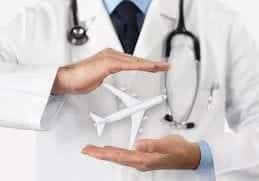 Subscribe to our newsletter
Subscribe to our newsletter
Unlock free content — just enter your name and email!

This guide aims to help health professionals and travelers quickly identify specific health risks for each country. It is essential to consult a professional before any trip to obtain appropriate medical recommendations. We have no control over the display of country or city names on the map, and the language used may be different from French. # Travel medical kit A well-equipped travel medical kit can make a big difference in an emergency. Here is a list of essential items to include: Remember that your safety and health are paramount. It is always advisable to consult a professional before any trip.Basic MedicationsFirst Aid EquipmentMonitoring EquipmentProtection EquipmentTravel Tips